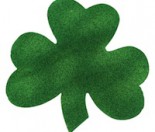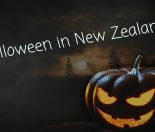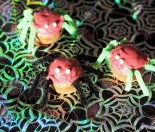Passover is a Jewish festival that is celebrated all over the world. Read about the history of Passover and get ideas for celebrating Passover with your family in NZ.
On an evening in late April each year, Jewish families – throughout New Zealand and all over the world – will be beginning a long evening of celebration, storytelling, giving thanks and eating. They will be celebrating the beginning of the festival of Passover and this festival will last for eight days (or seven if they live in Israel).
Many churches, on or about this time, may be having Passover services too.
How did Passover start?
According to Judeo-Christian tradition, about 4000 years ago a Babylonian man called Abraham decided, much to his father’s horror, that the wooden idols that his father and the people around them worshipped, were simply carved pieces of wood. He hacked the idols to pieces to demonstrate their lack of power. Not surprisingly, he left home shortly thereafter.
God spoke to Abraham and assured him that he would be the father of a mighty and numerous nation. And so, the idea that there is a single spiritual entity – a one and only powerful and protective God – was born. Abraham and his household, their children and grandchildren became believers in one God.
Abraham “begat” Isaac, Isaac “begat” Jacob and Jacob was the father of twelve sons, one of whom was Joseph. Joseph was sold into slavery by his brothers and was eventually taken to Egypt as a slave. Joseph predicted that there would be seven good years of harvest when Egypt should set aside large stores of food to be used during the seven years of famine that would undoubtedly follow. He eventually became the Pharaoh’s right-hand-man in charge of making sure that Egypt set up sufficient supplies to get them through the tough years.
In the meantime, the famine extended throughout the Middle East and Joseph’s brothers went to Egypt in search of food. The family was reunited and Jacob and all of his children and grandchildren and followers (called Hebrews by this stage) decamped to Egypt to live out the famine.
Fast forward a few hundred years and things for the Hebrews in Egypt took a decidedly worse turn. They were enslaved by the Egyptians and forced to work as labourers. All of their rights were removed and Pharaoh decreed that all of their babies should be slaughtered. A little baby boy called Moses was placed in a basket in the bulrushes and sent floating down the Nile in the hope that his life would be spared. He was scooped up by the current Pharaoh’s daughter and became a prince of the household.
As an adult, Moses realized that he was part of the tribe of enslaved Hebrews and eventually received the call from God that he was responsible for getting the Hebrews out of Egypt. Nine plagues later (the River Nile turned to blood, Frogs, Vermin, Marauding Beasts, Illness, Boils, Hail, Locusts, and Darkness) and nine refused appeals from Moses to Pharaoh to “Let my People go” and God told Moses that he would send a tenth plague; The Angel of Death would visit every household in Egypt and every first-born child would be killed.
In order for the Hebrew children to be spared, Moses told them to mark the doorpost of their houses with the blood of a sacrificial lamb and the Angel of Death would pass over them. Hence the festival is named Passover.
Once Pharaoh’s son had died – and seeing that Pharaoh himself was a first-born – he decided to let the Hebrew slaves go. About six hundred thousand Hebrew people left Egypt, came to the Red Sea which parted so that they could cross, eventually traveled to the foot of Mount Sinai, received the Ten Commandments and became the people known as the Children of Israel – the ancestors of all Jewish people today.
Celebrating Passover
For close to three thousand years – and there is much written and archeological evidence – the festival of Passover has been marked by Jews every year through the telling of the story, the singing of traditional songs and the eating of unleavened bread.
Let me tell you my favourite bits of the first night of Passover.
Be sure to check for the full moon in April. As long as it is clear enough you will see a very large moon early on in the evening and a stunningly clear, bright moon throughout the night. It is not hard to imagine that this moon lit the way for a huge population of Hebrews to be able to leave Egypt during the night.
The table is elaborately set for a festive meal, but first we begin to tell the story of the Exodus from Egypt. Most Jewish ceremonies are carried out in Hebrew but, although there will certainly be our fair share of Hebrew, this is a festival that is child-focussed so that every child should become familiar with how the Jewish people became a free nation – and every adult too – so the story has to be told in whatever language is most familiar to the participants – several languages if necessary.
The Unleavened Bread
We have our first bite of Matza (pronounced Mutt-zah) which is unleavened bread. Imagine a square water cracker (about 25 x 25 cm) made solely of flour and water, rapidly baked. We eat Matza to commemorate when the Children of Israel had to race out of Egypt, before Pharaoh changed his mind. They had bread dough prepared which they carried out on their backs but there was no time for the dough to rise.
And so, we eat absolutely nothing with any raising agent in it for the eight days of Passover. That cuts out bread, biscuits, cake and many, many more everyday foods.
The first bite of Matza tastes absolutely wonderful. After eight days, the novelty wears off and it feels like you are eating a never-ending supply of cardboard!
Throughout the evening we partake of many symbolic foods. My absolute favourite is Charoset. The essential ingredient is ground nuts. Whatever else is added comes from the tradition of each particular family. There may be chopped dried fruit, cinnamon, grated apple and/or wine. (When we were blessed with two grandmothers at the table we always had two sorts, one from each household.) The end result is a crunchy paste representing the mortar that used to hold together the bricks that the Hebrew slaves were forced to make for building.
Less favourite is the eating of a small piece of raw and very eye-watering horseradish, which reminds us of the bitterness of slavery.
We also dip parsley into salt water to represent the tears that were shed and the bitterness that was experienced.
Four cups of wine are ritually drunk with appropriate blessings made. No wonder we all enjoy Seder (the first and second nights of Passover) so much!
Chicken soup and what?
We begin the meal with a hard-boiled egg with salt water poured over it. The egg represents the yearly cycle of festivals and celebrations, the life cycle of all of us – with its pleasures and sadness and the concept of eternity with no beginning or ending. The salt water – bitterness and tears of slavery – reminds us not only of Jewish people, but all people who do not live as free people.
No Seder meal would be complete without chicken soup with Matza balls. The chicken soup is always a clear soup. Because no bread or flour is used during Passover, there are many imaginative ways in which the unleavened sheets (Matza) are used. One way is to grind it so that you are left with fine crumbs which can be used as “breadcrumbs.” Matza balls are made by mixing these Matza crumbs with egg, herbs, spices and melted chicken fat – if you can take the cholesterol, oil if you can’t – but, believe me, it will never taste the same!
There is usually a fair bit of reminiscing about whose grandma made the best Matza balls and, by best, everyone means the lightest. Lightness is a great achievement when what you are essentially cooking is ground flour and water!
Why do churches celebrate Passover?
Jesus was a Jewish man and would have celebrated Passover. Most Christians believe that The Last Supper that Jesus had with his disciples was, in fact, the first night of Passover and so he would have been telling the story of the Exodus from Egypt, eating Matza and drinking four cups of wine.
It is highly likely that when he said that his blood would be represented by sacramental wine and his body would be represented by a “wafer” he was referring to the wine and the Matza of the first night of Passover.
Since Christianity operates on a solar calendar and Judaism operates on a lunar calendar, the first night of Passover and the Good Friday of Easter rarely fall on the same day and may be as much as three weeks apart.
What do I say or do at Passover?
Do feel free to wish your Jewish friends “Happy Passover.” What they will or will not eat during that time will vary widely according to their level of observance. Most Jews won’t eat bread during that time and many will not eat anything – other than Kosher for Pesach food – that has any flour at all in it.
On the evening of the fist day of Passover, that first bite of bread will be absolutely delicious.






Can somebody advis where Matzos could be obtained in Brownsbay/Albany? Could not find it at Pack & Save.